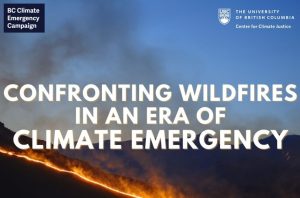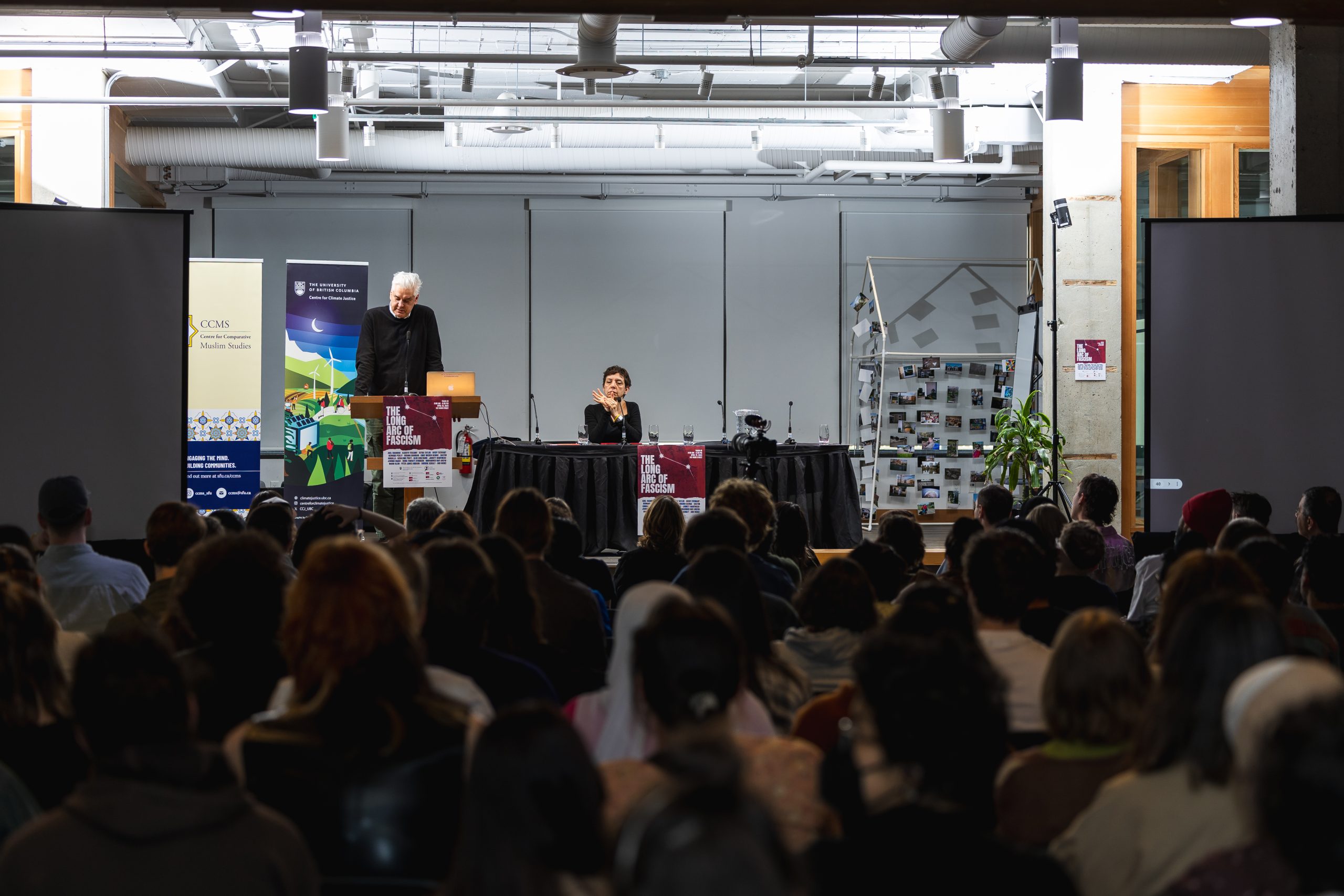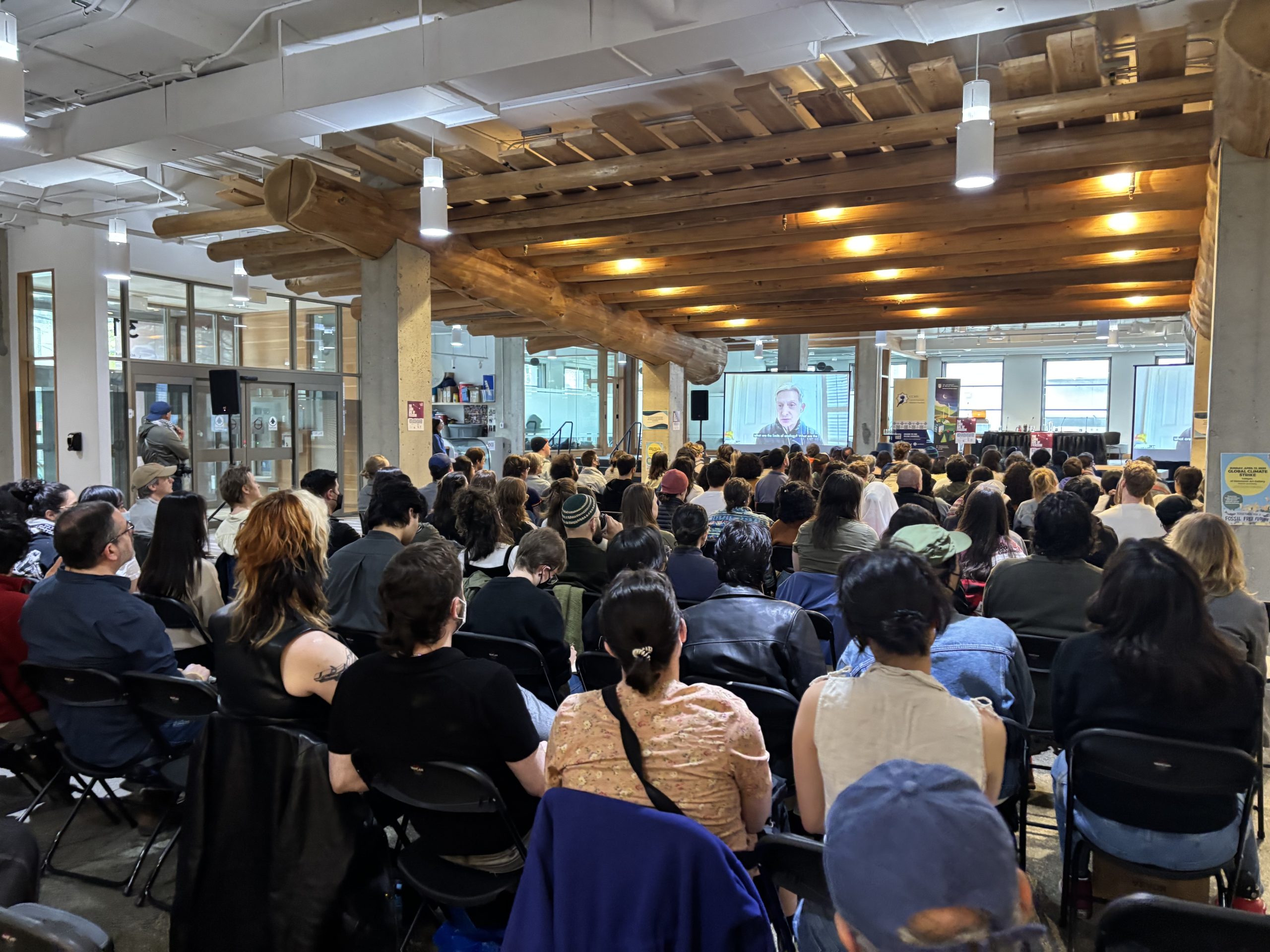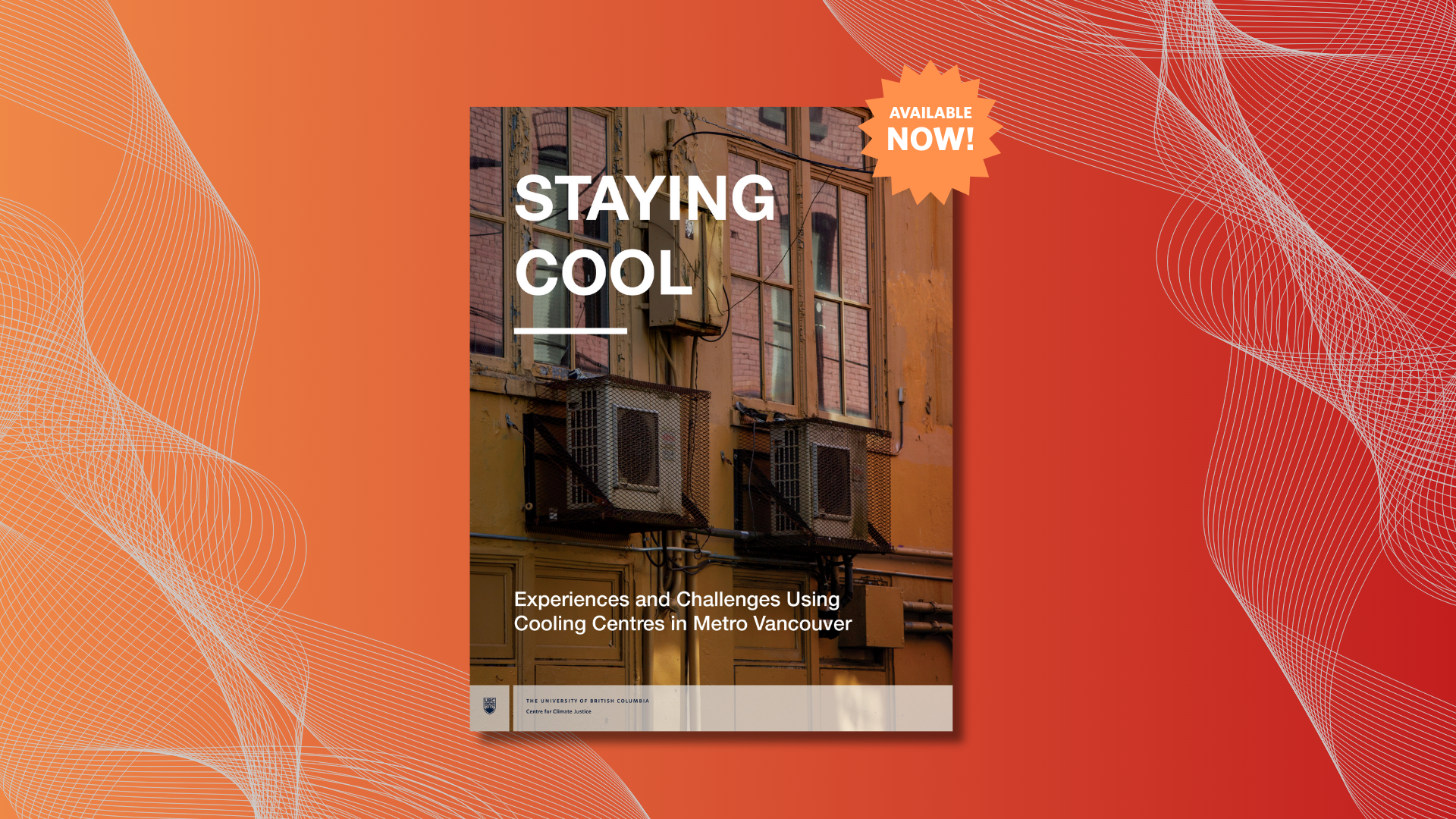

The Confronting Wildfires in an Era of Climate Emergency event co-hosted by the Centre for Climate Justice and the BC Climate Emergency Unit brought together experts and advocates to confront pressing challenges surrounding climate change, wildfires, and community safety across Canada. The panel, moderated by Seth Klein, featured insightful commentary from prominent voices such as Joe Gilchrist, Dr. Maura Brown, Byron Cruz, and John Vaillant. Throughout the discussion, the panelists aimed to address vital questions such as: How do we balance investments in emergency response with proactive climate action that reduces emissions, and how can we mitigate extreme weather events and ensure the safety of our communities and workers?
Joe Gilchrist, emphasized the importance of indigenous land stewardship and spoke on the necessity of reintroducing cultural burning practices to prevent catastrophic forest fires. Gilchrist also underscored the impending political shift from reactive responses to proactive prevention strategies, especially in the context of the upcoming elections: “With the election coming up, it will be a political issue to change from response to prevention.”
Dr. Maura Brown illuminated the harmful impacts of wildfires on public health, particularly emphasizing the detrimental effects of PM2.5 particles, which she described as “the principal threat to public health.” She highlighted that the health impacts of wildfires are “very inequitably distributed and impact vulnerable members of society the hardest.”
Byron Cruz brought attention to the plight of migrant workers during emergencies, stressing the need for equitable support and housing solutions beyond the immediate crisis period. He condemned the federal government’s lack of support, noting that “the federal government continues to exploit migrant workers with precarious immigration status.” Furthermore, Cruz emphasized that “there is no way of talking about climate justice without migrant justice” and highlighted the severe displacement issues, saying, “fires, heatwaves, and evacuations displace migrant workers and most governments fail to provide adequate support or alternative housing for migrant workers.”
John Vaillant stressed the urgent need for a fundamental shift in our approach to climate action, stating, “nature is telling us that we cannot maintain our allegiance to the status quo.” He emphasized the importance of balancing investments in emergency response mechanisms with proactive measures to reduce emissions and expressed the need to resist detrimental practices of the petroleum industry, regardless of the cost. Vaillant also called for a reevaluation of our current policies, advocating for bold, transformative actions that prioritize long-term environmental sustainability and community safety over short-term economic gains.
Our distinguished panelists underscored the urgency of addressing climate change through collaborative and multifaceted approaches and illuminated the complex intersections of climate emergency, community safety, and social justice. As Canada grapples with the escalating impacts of climate change, particularly with the onset of wildfire season, forums like these serve as crucial platforms for dialogue, innovation, and collective action toward a more resilient future.
Click here to access the recording!


